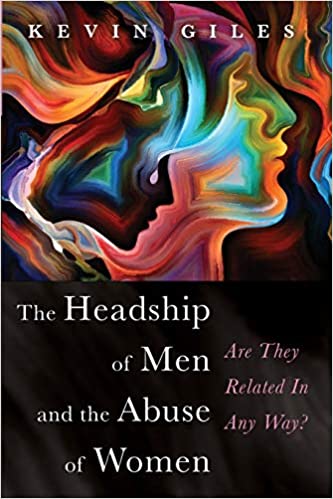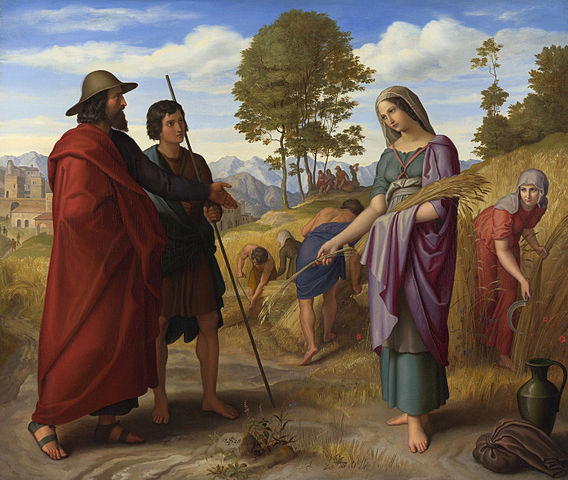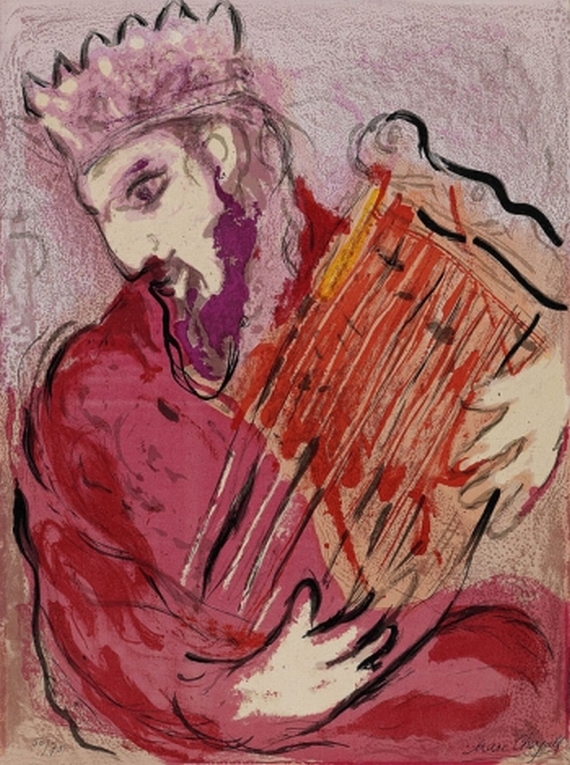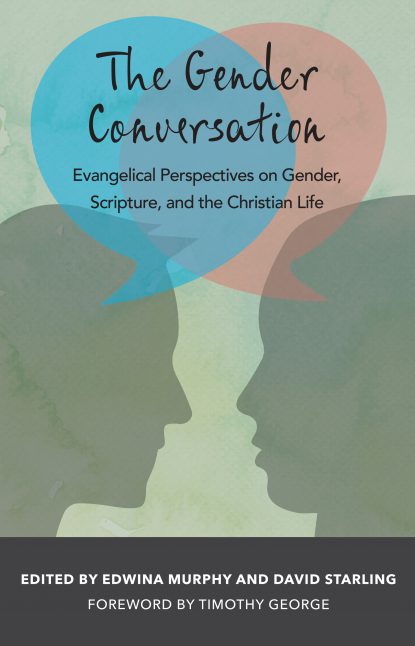
By Marg Mowczko
For most of the Church’s history, in most Christian denominations and movements, women have been denied the privilege of serving as leaders. Just one or two New Testament verses, which do not seem to allow women to have a ministry which involves public speaking (1 Cor. 14:34) or which involves teaching a man (1 Tim. 2:12), are frequently cited as the reasons women cannot be leaders.[1] There are however, several women mentioned in the New Testament who did function as church leaders. Even though these women are mentioned briefly, they do serve as valid biblical precedents which call into question the widespread and persistent belief that the Bible teaches that church leaders can only be men.
In Ephesians 4:11, Paul lists several kinds of ministers which Jesus Christ has given to the church:
So Christ himself gave the apostles, the prophets, the evangelists, the pastors and teachers, to equip his people for works of service, so that the body of Christ may be built up . . . Ephesians 4:11-12 (NIV 2011) (cf. 1 Cor. 12:28-31).[2]
In this article I use Paul’s list as a reference point, and show that there was at least one woman in the New Testament who fulfilled each of these ministerial leadership roles.
Women as Apostles
Paul begins his list in Ephesians 4:11 with apostles. Apostles were people sent initially by Jesus (Mark 6:7; Gal. 1:1), and later by the church (Acts 13:1-3), to pioneer a new work which facilitated the spread of the gospel. In the New Testament, several people, apart from the Twelve, are mentioned as being apostles.[3] One of these is a woman—Junia.
Junia and Andronicus (who may have been husband and wife) were members of the church in Rome; they may even have been the founders of the church there. Paul sends greetings to them in Romans 16:7 and speaks warmly of them, mentioning that he is relatives of them (or fellow Jews), and that they had become Christians before he did. Andronicus and Junia had suffered persecution because of their faith and at some point had been fellow prisoners with Paul. Paul also states that Andronicus and Junia were “outstanding among the apostles”. This is a wonderful commendation coming from someone who was himself an outstanding apostle.[4]
Unfortunately, Junia’s impact as a precedent for female church leadership has been slight because many people have failed to realise that she was a woman. This problem has been exacerbated by the fact that, in the 13th century, a New Testament copyist masculinised her name to (the equivalent of) Junias.[5] This alteration to scripture was then adopted by many English translations, until recently. However, in all the Greek manuscripts before the 13th century, Junia’s name is feminine and several early church theologians, such as Chrysostom, Origen, and Jerome, referred to her as being both female and an apostle.[6] Junia was one of the first female apostles, but many more apostolic women, throughout the church’s history, have pioneered new works which have facilitated the spread of the gospel. [More about Junia here.]
Women as Prophets
Second on Paul’s list of ministers are prophets. With the coming of the Holy Spirit at Pentecost, the function of prophecy became more widespread than previously. On the day of Pentecost, Peter quoted from the prophet Joel and said:
And it will be in the last days,” says God, “that I will pour out my Spirit upon all flesh, and your sons and your daughters will prophesy; your youth will see visions and your seniors will dream dreams. Even on both my male servants [ministers] and on my female servants [ministers], in those days, I will pour out my Spirit and they will prophesy. Acts 2:17-18.
Prophets were people who spoke for God. Their speech was inspired by the Holy Spirit and it may or may not have included foretelling. In the early church, prophets provided guidance (Acts 13:3-4; 16:6), instruction (1 Cor. 14:31), strengthening, encouragement, and comfort (1 Cor. 14:3). Paul considered the ability to prophecy as being the most desirable of the spiritual gifts (1 Cor. 14:1); and he regarded the ministry of prophets as important and influential. Paul lists prophesying and prophets before teaching and teachers in the lists of ministry gifts in Romans 12:6-8, 1 Corinthians 12:28-30, and Ephesians 4:11.
In Acts 21:9 we are told that Philip had four unmarried daughters who prophesied. Some argue that Philip’s daughters are not explicitly called “prophets” or “prophetesses” in the Greek text of Acts 21:9 (cf. Agabus who is clearly called a “prophet” in the next verse, Acts 21:10). However, this does not mean that the women were not recognised as prophets. The participle of “prophesy” is used to describe the women in Greek text of Acts 21:9. The participle is often used in the New Testament to give a more immediate sense of an action. “Prophesying” is what characterised the ongoing ministry of these women. Thus they were prophets.
Philip’s four daughters are barely mentioned in the New Testament, but they are mentioned several times in other early church writings. The fourth century church historian Eusebius described these women as “mighty luminaries” and ranked them “among the first stage in the apostolic succession.”[7] Moreover, he regarded the ministry of Philip’s daughters as the benchmark for prophetic ministry in the early church. Quoting Miltiades, Eusebius compared them with other notable male and female prophets: Agabus (Acts 11:27-28; 21:10), Judas and Silas (Acts 15:22, 27, 32), the prophetess Ammia of the church in Philadelphia, and Quadratus of Athens.[8] By all accounts, Philip’s daughters were highly respected female prophets and leaders in the early church, as was Ammia. [More about Philip’s daughters here.]
Women as Evangelists
Third on the Ephesians 4:11 list are the evangelists. Evangelists were men and women who preached the gospel of the death and resurrection of Jesus Christ.[9] Euodia and Syntyche of Philippi were coworkers of Paul.[10] Paul wrote that these women had “contended at my side for the cause of the gospel” (Phil. 4:2-3). This is similar to what Paul says about Timothy in the same letter: that he had served with him “in the gospel” (Phil. 2:22). Like Timothy, Euodia and Syntyche were involved in gospel work. This may well have involved ministering as evangelists [More about Euodia and Syntyche here.]
Another female minister esteemed by Paul was Phoebe. In Romans 16:1-2 Paul described Phoebe as both a diakonos and a prostatis. Kevin Giles writes:
The meaning of the last term has been much debated. In either its masculine or feminine form it means literally ‘one who stands before.’ This meaning is never lost whether it be translated leader, president, protector or patron . . . Its verbal form is proistanai (cf. Thess. 5:12; 1 Tim 5:17), a term used of male church leaders elsewhere in the New Testament.[11]
The term diakonos is always used by Paul to refer to a minister with a sacred commission; however in this one instance, where it is referring to a woman, the King James Version and some other English translations have unjustly translated diakonos as “servant.”[12] Phoebe was a minister or deacon, and a leader or patron, in the church at Cenchreae. Sadly, this fact is rarely acknowledged in most older English translations of Romans 16:1-2.
Many deacons in the apostolic and post-apostolic church made journeys during which they acted as agents and envoys of their church. We know that Phoebe traveled to Rome as Paul’s envoy, but a later writer asserts that she traveled to other places too.[13] Theodoret of Cyrrhus (393-460 AD) wrote: “[Paul] opened the world to her and in every land and sea she is celebrated. For not only do the Romans and Greeks know her, but even all the barbarians. . .”[14] It seems that Phoebe traveled widely and proclaimed the gospel in foreign lands where she effectively ministered as an evangelist. [More about Phoebe here.]
Women as Pastors and Teachers
Fourth on the list of ministers in Ephesians 4:11 are the pastor-teachers. The terms “pastors” and “teachers”, joined grammatically in the Greek of this verse, may reflect two aspects of the one role. Or the terms may be two different words for the same ministry. (There is little evidence of ministers being referred to as “pastors” in the very early church, but there is ample evidence of ministers being called “teachers”.) [More about the Greek grammar of Ephesians 4:11 is in a comment here.]
While the exact function of a pastor is not specified in the New Testament it certainly involved spiritual leadership. There are several women in the New Testament who functioned as pastor-teachers. Priscilla, another close friend and coworker of Paul, was one of them. Together with her husband Aquila, she taught the already learned and eloquent Apollos, who was himself a teacher, “the way of God” (i.e. theology) more accurately (Acts 18:24-26).
In the more reliable, earlier Greek manuscripts, Priscilla’s name appears first in four of the six mentions of this couple in the New Testament.[15] This may denote that Priscilla’s ministry was more prominent than her husband’s. It may also indicate that she had a higher social status than Aquila.[16] “It is well known that the early church attracted an unusual number of high status women . . .”[17] Some of these women, who lived in relatively spacious homes, hosted a congregation that met in their home.[18] As a prominent member of the congregation, the host would have functioned as a leader employing a ministry gift, possibly the pastor-teacher gift. Priscilla and Aquila were active in ministry and hosted a church in their home at Ephesus (1 Cor. 16:19) and later at Rome (Rom 16:3-5) where they ministered as pastor-teachers. [More about Priscilla here.]
Kevin Giles writes:
Prisca [Priscilla] is not the only woman associated with house church leadership. A surprising number of women are mentioned in this role. . . . In Acts we see Mark’s mother providing a home for the Christians to assemble (Acts 12:12) and at Philippi we hear of believers meeting in the home of Lydia (Acts 16:14-15, 40). Writing to the Colossians, Paul greets “Nympha and the church in her house” (Col. 4:15). Perhaps Chloe is also the host of a home-church (1 Cor. 1:11), as may have been some of the other women Paul greets in the last chapter of Romans.[19]
The “chosen lady”, whom John addresses in his second letter, was a woman functioning as a house-church leader and pastor. In the Greek of 2 John, it is clear that at times John is addressing a single person (the lady), and that at other times he is referring to plural persons (her followers or her congregation). John refers to his followers, and hers, similarly, as “children” (2 John 1:1, 4, 13 cf. 3 John 1:4). Furthermore, the word “lady” (kuria) used in 2 John 1 & 5, is the female equivalent of “lord” (kurios). This lady was a woman with an elevated social position. Numerous ancient papyrus letters, as well as ancient Greek literature, show that kuria was a respectful way to address a woman.[20] The “chosen lady” was a person, a house-church leader and pastor. The “chosen lady” was not a church (i.e. congregation) as some have suggested. [More about the “chosen lady” here.]
Conclusion
Stanley Grenz notes that the gospel “radically altered the position of women, elevating them to a partnership with men unparalleled in first-century society.”[21] This is seen in the New Testament. The following list is of first-century women ministers and church leaders mentioned in the New Testament: Philip’s daughters (Acts 21:9), Priscilla (Acts 18:26; Rom. 16:3-5, etc.), Phoebe (Rom. 16:1-2), Junia (Rom. 16:7), possibly Chloe (1 Cor. 1:11), Euodia and Syntyche (Phil. 4:2-3), Nympha (Col. 4:15), Apphia (Phlm. 2), “the chosen lady” (2 John 1), “the chosen sister” (2 John 13), and probably Lydia (Acts 16:40), etc.
The church as a whole has been very slow to embrace the New Testament ideal of equality and mutuality among people regardless of race and gender (Gal. 3:28). This is shown by the fact that the slave trade and slavery was only outlawed in the “Christian” nations of Great Britain and the United States of America in 1833 and 1865 respectively,[22] and by the fact that racial discrimination has only been declared both immoral and illegal in recent history. I am convinced that discrimination against church leaders on the basis of gender will also become a thing of the past, and that future generations will look at our present difficulties and debate on this subject with incredulity.
It would be wonderful if the Church as a whole would recognise that, according to the New Testament, women did function as leaders—as apostles, prophets, evangelists, and pastor-teachers—and that they were respected and valued in these roles by such people as the apostle Paul. In short, it is biblical for a woman to be a church leader. Moreover, if we deny gifted women the opportunity to exercise their leadership ministries, we reject some of the very people Jesus has appointed and given to his church. The church’s mission can only be enhanced and made more effective when gifted men and women minister together using their complementary skills and abilities. Men and women should be united in the cause of the gospel and in building up the body of Christ, as well as in equipping the people of God to reach the lost (Eph. 4:11-12).
Endnotes
[1] 1 Corinthians 14:34 and 1 Timothy 2:12 are discussed in articles here and here.
[2] In the Greek, there is no hint that Ephesians 4:11, or any other verse which speaks of spiritual gifts, including those of leadership and teaching, applies more to men than to women. On the contrary, every New Testament verse which speaks of spiritual gifts, manifestations, or ministries is completely free of any gender bias in the Greek. (Verses which mention spiritual ministry gift: Acts 2:17-18; Rom. 12:6-8; 1 Cor. 12:7-11 & 27-28; 1 Cor. 14:26-33; Eph. 4:11-12; Heb. 2:4; 1 Pet. 4:9-11.)
[3] These apostles include Paul, Barnabas (Acts 14:14), Apollos (1 Cor. 1:12), Epaphroditus (Phil. 2:25), Andronicus and Junia (Rom. 16:7). Jesus is also called an apostle in Hebrews 3:1.
[4] In his Homilies on the Book of Romans, fourth century church father Chrysostom preached favourably about Junia, and using Paul’s words, he acknowledged her as an outstanding female apostle.
[5] The masculinised name “Junias” does not appear in any early Greek manuscript whatsoever, religious or otherwise. The feminine name “Junia” however is used about 250 times in various other early Greek manuscripts. James D.G. Dunn writes:
Lampe [in his Patristic Greek Lexicon] 139-40, 147 indicates over 250 examples of “Junia,” none of Junias, as was taken for granted by the patristic commentators, and indeed up to the Middle Ages. The assumption that it must be male is a striking indictment of male presumption regarding the character and structure of earliest Christianity. . . We may firmly conclude, however, that one of the foundation apostles of Christianity was a woman and wife.
James D.G. Dunn, Romans 9-16 (Word Biblical Commentary, Vol 38B) (Dallas: Word, 1988) 894.
[6] “The earliest commentator on Romans 16:7 Origen of Alexandria (c.185-254/55) took the name Junia to be feminine, as did Jerome (340/50-419/20), Hatto of Vercelli (924-961), Theophylact (c.1050-c.1108), and Peter Abelard (1079-1142). In fact no commentator on the text until Aegidus of Rome (1245-1316) took the name to be masculine.”
Bernadette Brooten, “Junia . . . Outstanding among the Apostles (Romans 16:7)”, Women Priests: A Catholic Commentary on the Catholic Declaration, Arlene and Leonard Swidler (eds) (Paulist Press, 1979) 141-144, 141.
[7] Eusebius, History of the Church. 3.37.1
[8] Eusebius, History of the Church. 5.17.3
[9] Based on how the word is used in the New Testament, C.H. Dodd explains that the content of preaching (kerugma) in the New Testament was primarily concerned with the lordship and resurrection of Christ. Furthermore, Dodd defines preaching (kerugma) as “. . . the public proclamation of Christianity to the non-Christian world”. The Apostolic Preaching and Its Developments (Harper and Row, 1964) 261. The proclamation of Mary Magdalene, “I have seen the Lord”, may be regarded as an example of New Testament preaching (John 20:17-18).
[10] “Coworker” is Paul’s favourite ministry title. E.E. Ellis writes: “The designations most often given to Paul’s fellow workers are in descending order of frequency as follows: coworker (synergos), brother (adelphos) [or sister (adelphē) as in the cases of Phoebe and Apphia], minister (diakonos) and apostle (apostolos).”
E.E. Ellis, “Paul and his Coworkers”, Dictionary of Paul and His Letters, Gerald Hawthorne and Ralph Martin (eds) (Downers Grove: InterVarsity Press, 1993) 183.
[11] Kevin Giles, Patterns of Ministry Among the First Christians (Sydney: Collins Dove Publishers, 1992) 35.
[12] “All important modern translations of the Bible now restore the original language used by Paul . . . but somehow the illusions fostered by the King James falsifications remain common wisdom. Nevertheless, there is virtual consensus among historians of the early church as well as Biblical scholars that women held positions of honour and authority within early Christianity. . . .”
Rodney Stark, The Rise of Christianity (San Francisco: Harper Collins, 1997) 109.
[13] M. Mowczko “Deacons as Envoys in the Apostolic Fathers”, Phoebe: A Deacon of the Church in Cenchrea (25.11.14) <http://newlife.id.au/equality-and-gender-issues/phoebe-a-deacon-of-the-church-in-cenchrea-part-6/>
[14] Theodoret’s commentary on Romans 16:1-2:
Cenchreae is a large village of Corinth. It is worth admiring the strength of the preaching. In a short time not only the cities, but also the villages were filled with such piety. Such was the significance of the church at Cenchreae that it had a female deacon [i.e. minister], honorable and well known. Such was the wealth of her accomplishments that she was praised by the apostolic tongue… I think what [Paul] calls patronage (prostasia) is hospitality (philoxenia) and protection (kēdemonia). Praise is heaped upon her. It seems that she received him in her house for a little time, for it is clear that he stayed in Corinth. He opened the world to her and in every land and sea she is celebrated. For not only do the Romans and Greeks know her, but even all the barbarians.
Quoted by Kevin Madison and Carolyn Osiek, Ordained Women in the Early Church (Baltimore: The John Hopkins University Press, 2005) 16.
[15] Priscilla’s name appears first in Acts 18:18, 26; Romans 16:3 and 2 Timothy 4:19.
[16] Luke, the author of Acts, was very careful in which order he placed names. This is seen in the shared ministry of Paul and Barnabas; whoever of the two was the most prominent in ministry, or the most recognised in any given situation, his name appears first.
[17] Stark, Rise of Christianity, 107.
[18] M. Mowczko, The First Century Church and the Ministry of Women (08.10.14) <http://newlife.id.au/equality-and-gender-issues/the-first-century-church-and-the-ministry-of-women/>
[19] Giles, Patterns of Ministry, 34-35
[20] M. Mowczko, Kuria “Lady” in Papyrus Letters (23.08.13) <http://newlife.id.au/equality-and-gender-issues/kuria-lady-in-papyrus-letters/>
[21] Stanley J. Grenz and Denise Muir Kjesbo, Women in the Church: A Biblical Theology of Women in Ministry (Downers Grove, Illinois: InterVaristy Press, 1995) 78.
[22] Advocates of slavery often used scripture to support their position. Slavery was abolished throughout most of the British Empire when the Slavery Abolition Act came into force in 1833. The United States abolished slavery in 1865 with the 13th Amendment to their Constitution.
© 22nd of August 2015, Margaret Mowczko
This article was first posted on newlife.id.au here.
 Kevin Giles latest, and he says, his final book is a challenging look at the practical outworking of a strongly complementarian view of gender relations in the church and home. You can order it online or directly from Kevin himslef if you have his contact details.
Kevin Giles latest, and he says, his final book is a challenging look at the practical outworking of a strongly complementarian view of gender relations in the church and home. You can order it online or directly from Kevin himslef if you have his contact details.








 I wrote it because I was getting tired of the internal debates between egalitarian and complementarian Christians talking in their echo-chambers about a topic that the world needed to hear about from Christians. Even though I am not against talking through these things within our Christian huddles in order to keep working through this issue, I questioned whether any of this was making an impact missionally. I even wondered whether sometimes our discussions and debates were detrimental to our witness.
I wrote it because I was getting tired of the internal debates between egalitarian and complementarian Christians talking in their echo-chambers about a topic that the world needed to hear about from Christians. Even though I am not against talking through these things within our Christian huddles in order to keep working through this issue, I questioned whether any of this was making an impact missionally. I even wondered whether sometimes our discussions and debates were detrimental to our witness.